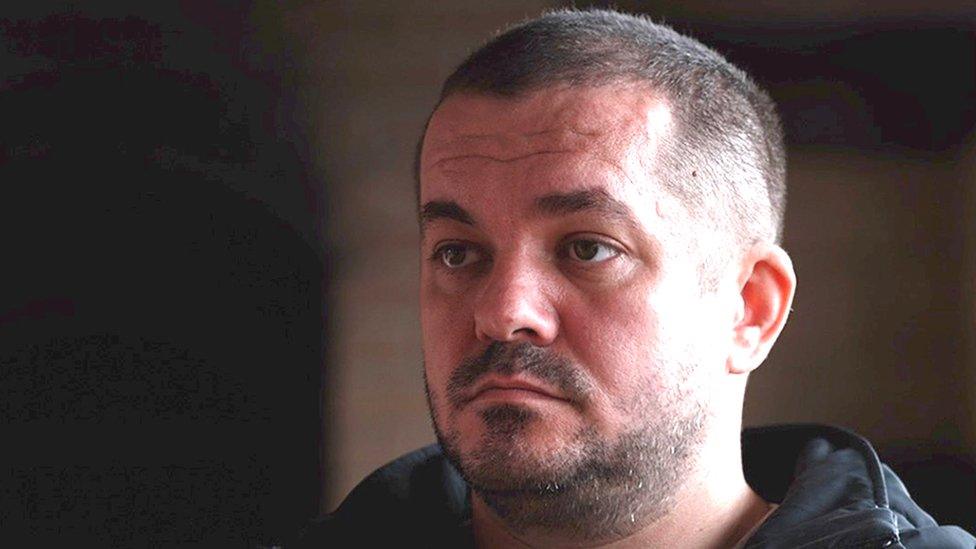Ukraine war: Families hide in cellars as Russia targets Donbas region
- Published
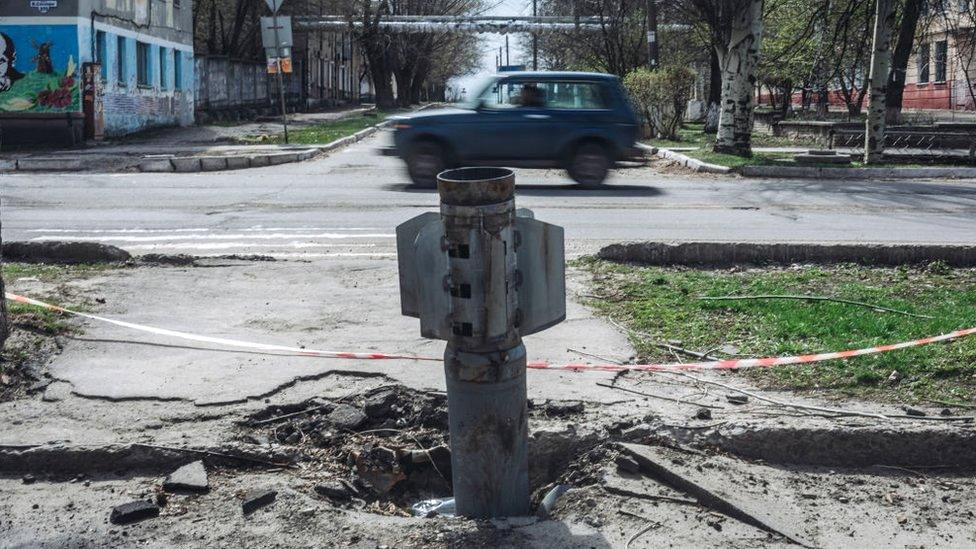
Most residents of Lysychansk have left, with those remaining living in desperate conditions under constant shelling
As Russian forces inch forwards along a meandering front line in the north of the Donbas region, only one road now remains open for Ukrainians seeking access to the besieged hilltop farming town of Lysychansk.
A brown smoke trail from a rocket drifted overhead, and three artillery shells landed perhaps a mile east of the road one recent afternoon, as Major Oleg Kravchenko drove at furious speed towards a forward medical post close to the advancing Russian front lines.
"Every day it's blood, blood, blood, blood," said Maj Kravchenko, a wry, burly figure who heads the army's medical teams in the area.
"Keep your head down and watch out for snipers. The Russians were shelling this area 15 minutes ago," an army nurse said as we followed the major into a derelict building where ambulance teams were waiting for the next call.
The trill of springtime birdsong was interrupted every few seconds by the boom of artillery. Broken glass and debris covered the floor. An unused table-tennis table stood in one corner, near a large hole that had been torn in the concrete wall by an incoming shell. The medics sat nearby around a makeshift table, drinking coffee.
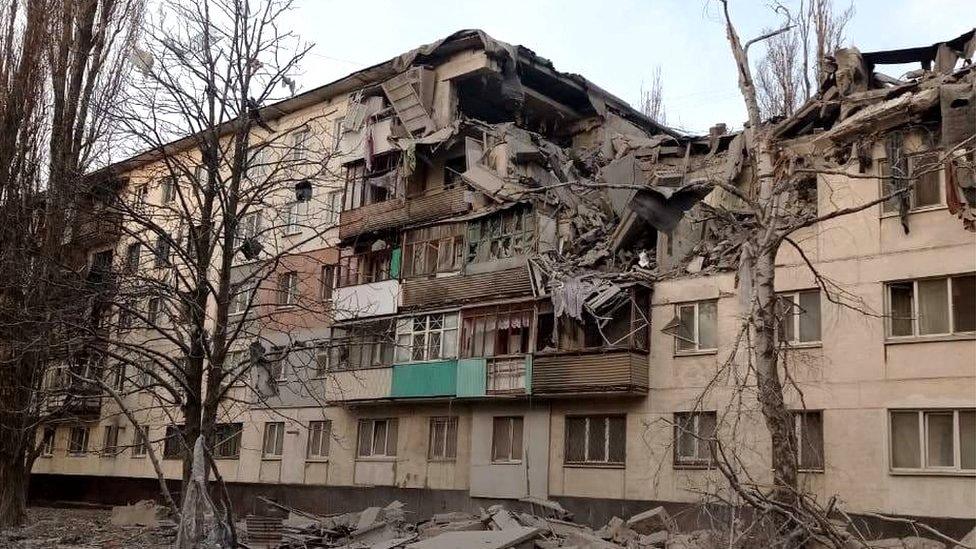
Residential buildings in Lysychansk have been damaged or destroyed by Russian shelling
Lysychansk is one of many strategic towns - set amid forests, rolling hills, and giant coal mines - now being targeted by the Kremlin as its forces try to organise a pincer movement from the east to seize the rest of the Donbas, and to encircle Ukrainian forces.
"The most we've had is 30 wounded (in one day). Shrapnel, bullets, trauma. Depending on what kind of battle. We pick them up and take them to the hospital. The fighting is very extreme and dangerous now. But our soldiers are holding our positions and we're giving to our enemy a good fight," Maj Kravchenko said.
On many front lines, the overwhelming majority of injuries involve shrapnel and concussion - evidence of the Russian strategy of simply bombarding Ukraine's heavily-fortified positions from a distance. But the bullet injuries the major spoke about seem to back up reports that Russian troops are now seeking to advance on foot.
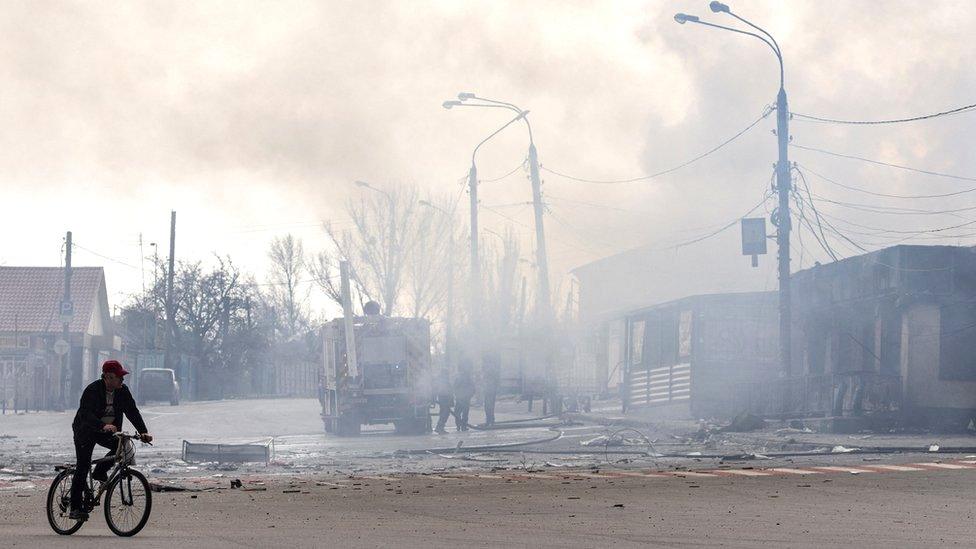
Despite the damage and shelling, some still venture out on the streets
Further up the hill, outside Lysychansk's crumbling, Soviet-era hospital, now run by the military, a soldier with severe head injuries lay on a stretcher inside an ambulance.
"The injury is severe. His prospects are very poor," said the medic treating him, gruffly, seconds before the ambulance left to move the patient to a safer location.
Upstairs, the darkened hospital wards were packed with more young soldiers, many lying listlessly on beds, suffering from concussion.
"It was mortar fire. On Easter day. My head aches. It's hard to focus," whispered Olexander Grinchak, 30. He gestured slowly towards the bed opposite, where his friend was recovering from similar injuries. The hospital has no running water, but is continuing to perform surgery.
On the streets outside, many buildings bear the scars of recent Russian artillery and rocket fire. A fresh impact site left a huge hole on the road; a petrol station had been shattered by another strike.
Russian forces have been pushing towards Lysychansk from the north, the east, and now from the south-east, in what appears to be a more methodical and perhaps more effective strategy to cut off key Ukrainian supply lines, including the region's vital rail network.
Most civilians have already abandoned Lysychansk and the nearby front-line town of Severodonetsk. But during a particularly noisy burst of shelling, a family of four walked along the pavement near the hospital carrying fresh supplies of food to a nearby cellar.
"We have nowhere else to go. No relatives in other places. Besides, you need money to live somewhere else and we would be broke within a month," said Anastasia Leontiova, holding her four-year-old son's hand.
"I'm feeling fine," said nine-year-old Masha, brightly, although she flinched when a loud explosion boomed across the town. "I'm not scared. Because I'm the older sister, so I'm not scared," she continued.

Masha and her family live in a cellar a few kilometres from the front line, with Russian troops positioned on three sides
Seventeen civilians, including several children, were living in the cellar of a large administrative building. Their water had just been cut, but they still had electricity.
One couple, Lubova Gubin, 69, and her husband Alexei, 73, sat on their beds in a tiny room, listening to the news on a radio and quietly arguing about what they should do. The retired kindergarten cleaner and truck driver have lived in Lysychansk their whole lives.
"We'll stay here. We've had a long life," said Alexei, firmly.
"Well, he decides," said Lubova.
"I told my wife she could leave with the children," replied Alexei.
"My husband is sick. His legs hurt. He can't walk. So, we'll stay. But I'm scared. This war should never have happened," said Lubova, before bursting into tears. "It's awful. I'm so afraid. I'm afraid every night. I don't know if we'll survive this. I don't know if Lysychansk, or Ukraine, will survive."
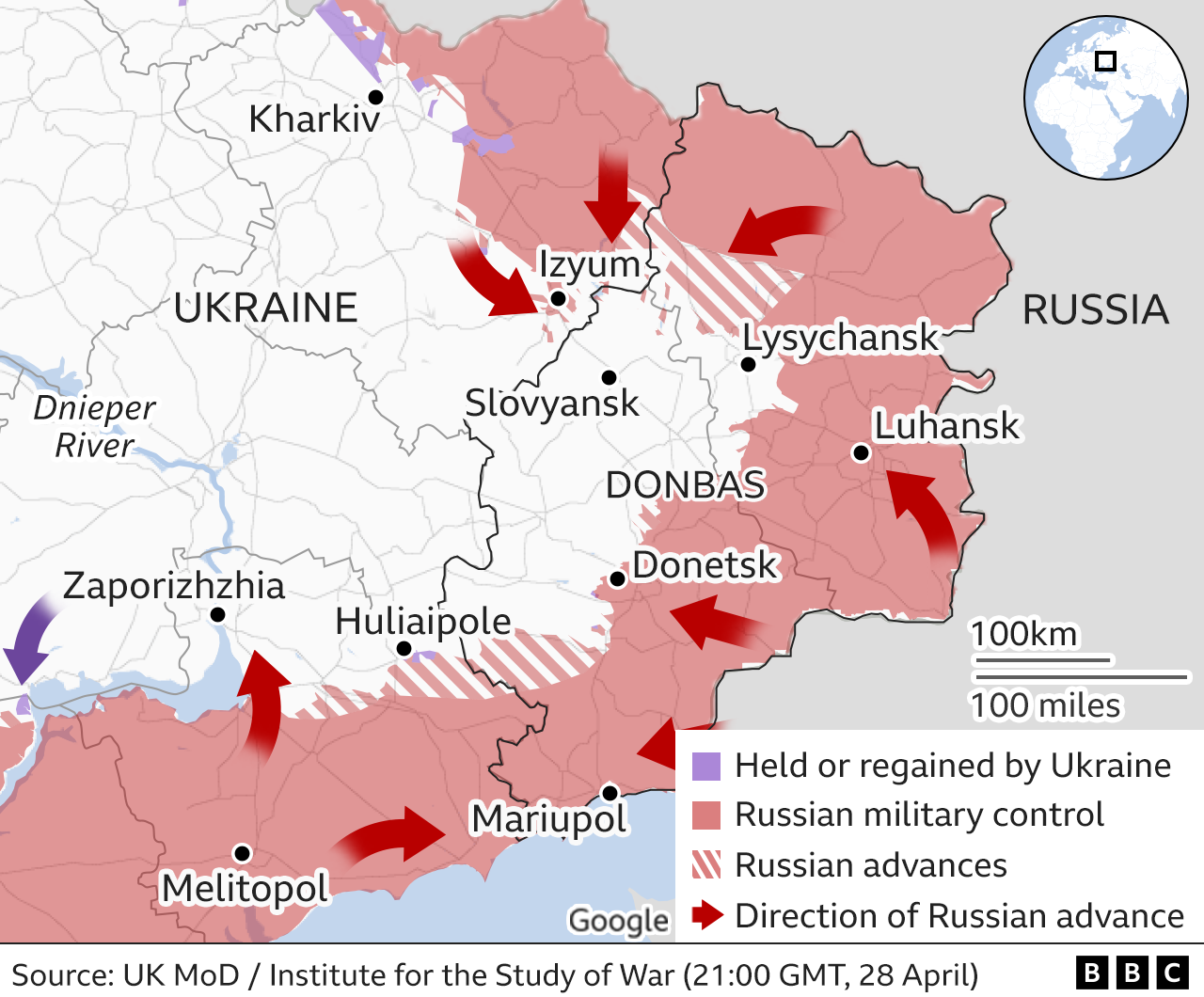
Related topics
- Published29 April 2022
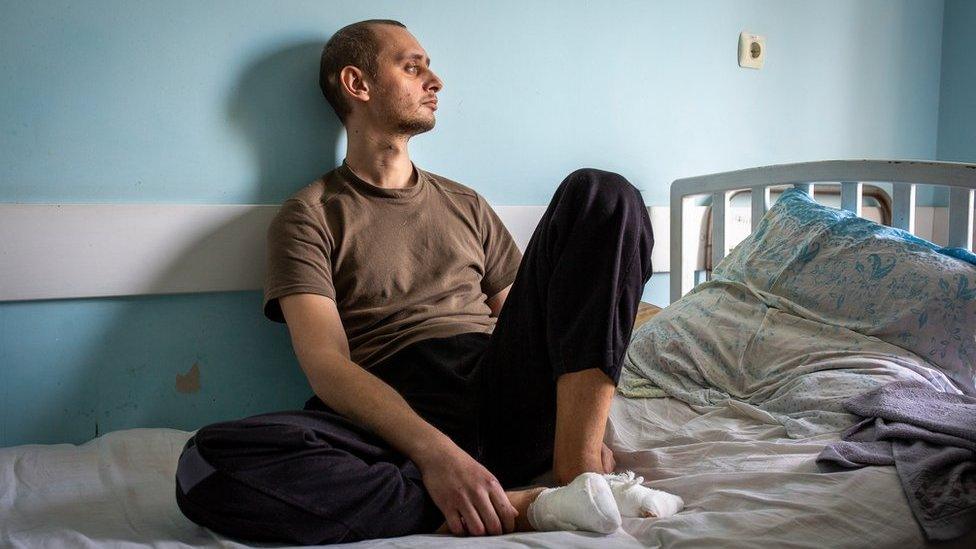
- Published29 April 2022
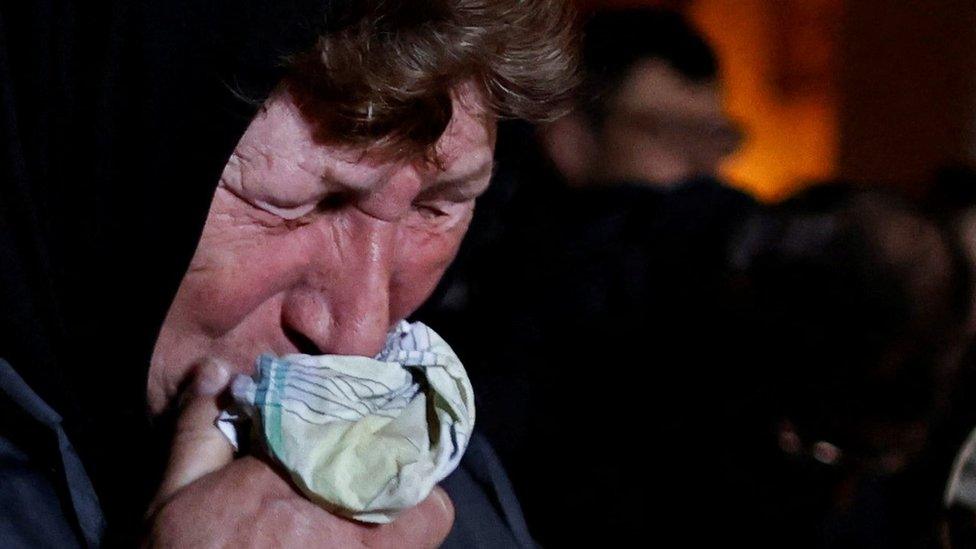
- Published13 April 2022

- Published28 April 2022
